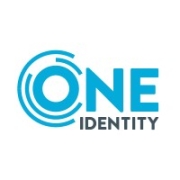PeerSpot’s crowdsourced user review platform helps technology decision-makers around the world to better connect with peers and other independent experts who provide advice without vendor bias.
Our users have ranked these solutions according to their valuable features, and discuss which features they like most and why.
You can read user reviews for the Top 8 Single Sign-On (SSO) Tools to help you decide which solution is best for you.
Users compare and give feedback on Single Sign-On (SSO) Tools that they’ve used — based on product reviews, ratings, and comparisons.
#1 Azure Active Directory
Azure Active Directory was ranked as the #1 Single Sign-On (SSO) Tool of 2022. PeerSpot users give Azure Active Directory an average rating of 8 out of 10.
David G., Founder/CEO at a computer software company, says, “With multi-factor authentication, we've seen a marked decrease in the number of threats we've seen come through.”
Luis D., Microsoft Azure Active Directory Support Engineer at Tek-Experts, states, “The most important things of Azure Active Directory are the security and the facility to manage all the services and users. It is very easy to manage users and assign roles, permissions, and access. At the same time, it is a very secure environment. Microsoft takes security very seriously. They take care of all the security and all the factors to prevent any kind of data or information compromise."
#2 Auth0
Auth0 was ranked as the #2 Single Sign-On (SSO) Tool of 2022. PeerSpot users give Auth0 an average rating of 8 out of 10.
An Engineer Lead for SaaS Technology & Customer Success at a media company explains why he likes the product so much, saying, "The solution's overall flexibility and customizability were the chief factors for selecting it in the beginning. They still remain among the best reasons to use Auth0. The flexibility that you get, and what it's allowed us to do on top of it in terms of code, is key."
Shlomi C., a System Architect at Skai, claims, "It's a very powerful platform. It has the ability to do the usual stuff, according to modern protocols, like OIDC and OAuth 2. But the real benefit of using the platform comes from its flexibility to enhance it with rules and, now, with what they call authentication pipelines. That is the most significant feature, as it allows you to customize everything regarding the authentication and authorization process."
#3 Fortinet FortiAuthenticator
Fortinet FortiAuthenticator was ranked as the #3 Single Sign-On (SSO) Tool of 2022. PeerSpot users give Fortinet FortiAuthenticator an average rating of 8 out of 10.
PeerSpot user Ayokunmi O., Systems Administrator at Interswitch, says, “I think the ease of deployment is a valuable feature. I like that the interface is intuitive and that natively and easily, it integrates with radios, ILDAP, fan mail, and with any applications supporting those protocols.”
Another reviewer, Ibrahim M., Senior Network & Security Engineer at a tech services company, explains, "The initial setup is a valuable point on Fortinet products. Most of the time, putting the theory into practice on the devices is quite friendly and straightforward. As long as you can read English you can find your way around the solution and make it work. This is a high value point on Fortinet - the way everything is laid out in the web UI is user-friendly and quite straightforward. The UI is quite simple."
#4 Frontegg
Frontegg was ranked as the #4 Single Sign-On (SSO) Tool of 2022. PeerSpot users give Frontegg an average rating of 10 out of 10.
A VP of Customer Success at a tech services company says, "The admin portal layer is super useful and saves valuable front-end development time. Another very important benefit, compared to others, is the fact that it’s genuinely REALLY easy to integrate. In just one hour and we were up and running. You can do a lot of customization, which takes some time, but is very easy to do since the documentation is very clear and easy. It really depends on how far you want to customize.”
A Developer at Kovrr also mentions, "The MFA policy via Frontegg allows us to enable/disable/enforce the Multi-Factor Authentication policy of our users and to enhance security and adhere to modern standards."
#5 LastPass Business
LastPass Business was ranked as the #5 Single Sign-On (SSO) Tool of 2022. PeerSpot users give LastPass Business an average rating of 8 out of 10.
Mike K., Senior Systems Analyst/Administrator at a energy/utilities company, comments, "One feature that is really important to us is the ability to create secure notes." Mike also mentions that the solution is “Straightforward to set up, has good support, is intuitive to use, and offers good value for the cost.”
Another PeerSpot user, an Identity & access specialist at a consumer goods company, says, “It is easy to use and stable.”
#6 Keeper
Keeper was ranked as the #6 Single Sign-On (SSO) Tool of 2022. PeerSpot users give Keeper an average rating of 8 out of 10.
David L., Owner at Creative Computer Consulting, mentions, "I like a couple of things about this solution. Being able to share passwords with other people is valuable. You can see if the information is out on the dark web and whether you have weak passwords and the last time they were changed. You could also have the 2FA or MFA codes embedded in the application so that you don't have to use your phone or any other 2FA device, which is something very important."
Another user, a Project Director, consulting through Escient at World Vision Australia, says the solution “Promotes good security, is easy to manage, and saves time in my daily tasks.”
#7 ManageEngine Password Manager Pro
ManageEngine Password Manager Pro was ranked as the #7 Single Sign-On (SSO) Tool of 2022. PeerSpot users give ManageEngine Password Manager Pro an average rating of 10 out of 10.
A reviewer, a Founder at a comms service provider, says, "The security provided is very enhanced and it does a great job of keeping passwords safe."
#8 OneLogin Workforce Identity
OneLogin Workforce Identity was ranked as the #8 Single Sign-On (SSO) Tool of 2022. PeerSpot users give OneLogin Workforce Identity an average rating of 8 out of 10.
A Control System Cybersecurity Analyst at a energy/utilities company says, “Something I really liked about the product was how easy it was to onboard and offboard people. Onboarding people took maybe 10 to 15 minutes overall. Once we had it connected to everything, once I made the OneLogin ID, it would essentially make usernames and passwords for every application that we had.”





It was interesting not to see Okta on this list. Did it make a broader list, but not the top tools?
I have implemented Okta, and I have implemented a dual-headed Okta in the past with ease, so I was a little surprised. The other tool I use is Thycotic Secret Server for Admin passwords, though they are now part of a new company.
LoginRadius SSO is a single sign-on authentication that allows fast, secure access across multiple websites and apps via one single identity. Try it today.